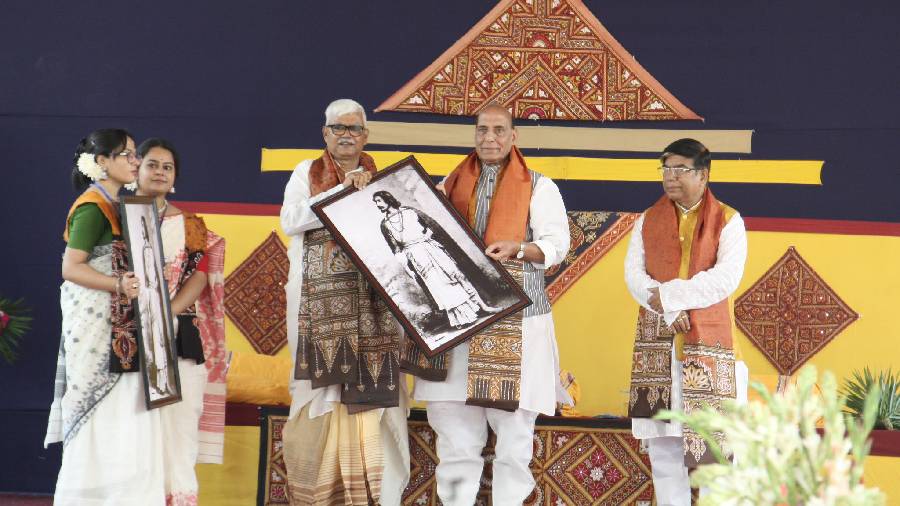The annual convocation of Visva-Bharati University has gradually discarded, almost entirely, the spirit of dignity once associated with it. But the speech of Rajnath Singh, the Union defence minister who was the chief guest this year, was, on the face of it, full of encouragement for the students, asking them to take Bengal ahead in science and technology and thus become a leader in India again. Condescension apart, Mr Singh, who seemed particularly familiar with Rabindranath Tagore, appeared to be offering a new context for Tagore’s principles. Tagore’s nationalism was presented simply through the return of his knighthood after Jallianwala Bagh, but his strong objection to the idea of patriotism, his subtle understanding of national coherence as an expression of self-understanding, the constant aspiration to rise above division — all these aspects and more remained unmentioned. What was mentioned, however, was that Tagore’s nationalism was not territorial but cultural — the ‘humanistic’ ideal that all students should follow. The ironies here are quite dizzying. It is understandable that the defence minister might wish to play down the territorial side of nationalism in the light of the external affair minister’s recent remark implying that India would not fight a neighbour unnamed by the prime minister because the neighbour is stronger. But cultural nationalism, as Mr Rajnath and his colleagues in the party exemplify it, has little to do with Tagore’s humanism. The struggle to reach peace, harmony, a brotherhood across borders, to light each his own lamp to shed light through understanding and education, to eliminate divisions, to see all history as human history are certainly not part of the their ceaseless drive for homogeneity and devaluation of minority groups and dissenting positions.
Appropriating icons whenever politically expedient is a familiar strategy of the ruling dispensation. Yet repeated references to Tagore did not improve the realities surrounding the convocation that was contested on many levels. The vice-chancellor’s gracelessness in denying invitation to professors and alumni was just the tip of the iceberg. The ugliness of his claim that Amartya Sen enjoyed a sliver of land more than his due, apart from allegedly 400 suspensions, show-cause notices and sackings of university staff over the last few years seem to be aimed at destroying the institution Tagore built. His values, however, may not be easy to destroy.









